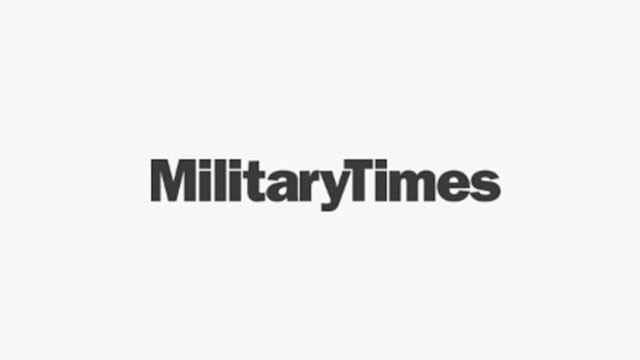source GAIA package: Sx_MilitaryTimes_M6201110105160330_5675.zip Origin key: Sx_MilitaryTimes_M6201110105160330 imported at Fri Jan 8 18:18:04 2016
Related reading
Odierno: Time coming to do 'less with less' (May 12)
VIRGINA BEACH, Va. — The primary threat to national security is the current fiscal crisis, which will force the military "to do less with less," said Gen. Raymond Odierno, head of the U.S. Joint Forces Command.
"During periods of austerity we have said we will have to do more with less," Odierno said. But this time, "we may have to do less with less."
"We will have to brutally accept risk, where in the past we brought down the level of risk."
To keep doing more leads to a "hollow force that is under-resourced," he said May 11 at the 2011 Joint Warfighting Conference here. "We must recognize new emerging challenges that require us to adapt and redefine the military art. We are now forced to make decisions which we could previously avoid."
He warned "the coming decade could be one of contraction."
He amplified the point in an answer to a question from the audience. "We just can't do more with less. That's what's led us to problems in the past. We have to decide what we are not going to do. It has to be based on strategy. What strategic issues are we not going to be able to address? … What are we going to stop doing? … Are we going to stop engaging in key areas of the world? Asia? Europe? The Middle East?"
He stopped short of offering specific ideas on what might be curtailed.
The Army general and former commander of forces in Iraq said as the services reset after a decade of war, the tendency is for them to look inward.
"We can in no way afford to do this. We have to move toward an integrated joint force," he said, even as his own Joint Forces Command is being shut down.
Odierno took command last October, when Defense Secretary Robert Gates had already targeted the command to be eliminated. Odierno acknowledged then that the decision to close the command, which had a $1 billion annual budget, was the beginning of re-evaluations needed in military spending.
Gates said at the time the command had completed its mission of forming a joint military force and the money would be needed for other priorities.
Where Odierno will go next is uncertain. He had been considered one of the front-runners to succeed Gen. George Casey as Army chief of staff. Instead, Gen. Martin Dempsey was selected. In coming months, other high-ranking military positions will come open: chairman and vice chairman of the Joint Chiefs of Staff and vice chief of staff of the Army.
In such roles, he would bring years of experience as a war-zone commander.
"There's one lesson I learned in all my time in Iraq. What I learned is the limit of military power. Military power can only do so much," Odierno said in answer to a question about how to align resources to what matters to war fighters.
In the last few years, the military has been asked to step in to accomplish some goals that may now be considered too far-reaching, he said.
"We have to realize we can't do that anymore. It can't be military power alone," Odierno said. Other agencies could contribute to meeting the goals, though often they lack resources. Questions for the future are "how much do we want the military to do, and what are the other agencies' contributions going to be," he said.
One ongoing challenge is working toward an environment that allows the military to hand control back to civilian authorities in the war zone.
"It's taken us a long time in Iraq and Afghanistan to create that environment. In Afghanistan, it's probably going to take us 12, 13 years to create that environment," Odierno said. "We can't just leave it because the aftermath is worse. We have to understand how we can deal with this problem up front and avoid the many mistakes we've made in the last 10 years."
The military shouldn't be expected to do nation-building, he said. "What we have to do is create the environment so that other agencies that should be doing nation building can do it."
Retaining big picture
Odierno called on leaders to keep the big picture in their sights.
"We need leaders who know what's better for our force as a whole and not focused internally on their own service," he said. "Effective leadership today doesn't mean success or protection of a service budget, weapon system or government program. Effective leadership in times of momentous strategic uncertainty means navigating often painful change with a moral and ethical courage, with physical and mental toughness, with appreciation for the greater goal of our nation's long-term prosperity and security."
The newest generation of leaders will inherit serious challenges, he said, and they need to be ready.
"One of the greatest successes of the recent warfare experience is the development of a phenomenal generation of young leaders who have what it takes to understand this emerging strategic environment and the joint forces' role in it," Odierno said. "We need those who have what it takes to make difficult choices in the interest of our nation's security."
He cited qualities that troops need to lead, in answer to a question on what he would tell young soldiers. "Mental and physical toughness, moral and ethical resiliency and behavior — if you get that up front, they will continue to grow into the leaders we need."





